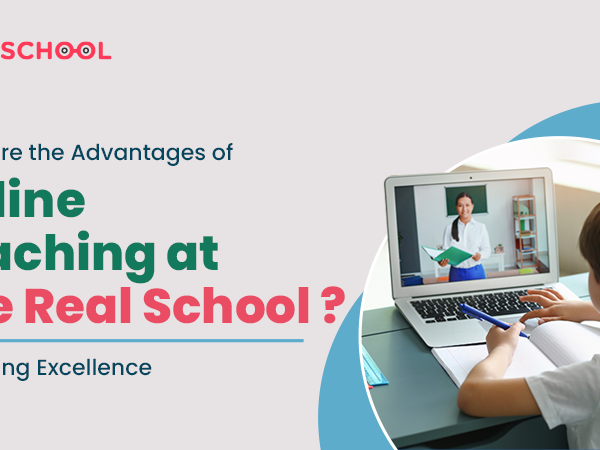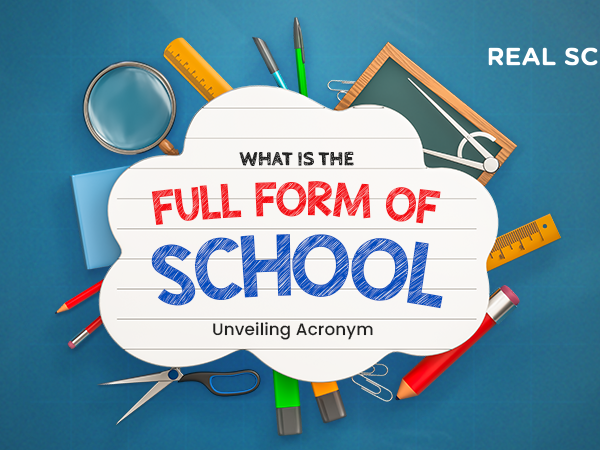Online schooling has become a buzzword in India over the last few years. With the advent of technology, more and more students are opting for online schooling as an alternative to traditional classroom education. Online schooling offers a flexible and convenient way for students to learn at their own pace and from the comfort of their own homes. In this blog, we will delve into what online schooling in India is, how it works, and its advantages and disadvantages. Whether you are a student, parent, or educator, this blog will provide you with valuable insights into the world of online schooling in India.
Online School for Kids
Online schooling has become an increasingly popular option for kids in recent years, providing a flexible and convenient alternative to traditional classroom education. With online school, kids can learn from anywhere and at any time, using technology to connect with teachers and classmates, access learning resources, and complete coursework.
One of the biggest advantages of online schooling for kids is flexibility. Online schools typically offer a self-paced learning environment, allowing students to work at their own pace and on their own schedule. This can be especially beneficial for kids who have other commitments, such as extracurricular activities, sports, or family obligations.
Online schools for kids also often offer a wide range of courses and curriculum options, including advanced courses and specialized programs. This can help kids to explore their interests and talents, and to find the best path for their academic and career goals.
Also Read: Educational Activities for Kids: Learning Activities for Kids
However, there are also some potential disadvantages to online schooling for kids. It can be challenging to stay motivated and engaged without the structure and social interaction of a traditional classroom environment. Additionally, online schools may not be able to provide the same level of hands-on or experiential learning opportunities as traditional schools.
Overall, online schooling can be a great option for kids who are self-motivated, independent learners, or who have unique needs or circumstances that make traditional classroom education difficult. It’s important for parents to carefully consider their child’s needs and preferences, and to research and compare different online school options to find the best fit.
Online Schooling In India
Online schooling in India has seen a surge in popularity over the past few years, especially due to the ongoing COVID-19 pandemic. With the help of technology, students are now able to access education from the comfort of their homes, eliminating the need to commute to a physical classroom.
Online schooling in India typically follows a similar model to traditional classroom education, with students attending virtual classes led by teachers, completing assignments and assessments, and interacting with classmates through online discussion boards and messaging systems. Online schools in India also often provide students with access to a variety of learning resources, including video lectures, digital textbooks, and interactive simulations.
One of the key advantages of online schooling in India is accessibility. Students who may have previously been unable to attend traditional schools due to geographic location, physical disabilities, or other barriers can now access quality education online. Online schooling can also be more affordable than traditional classroom education, as it eliminates the need for expenses such as transportation and classroom materials.
However, there are also some potential disadvantages to online schooling in India. Students may struggle to stay motivated and engaged in a virtual environment and may miss out on important social interactions and hands-on learning experiences. There can also be technical difficulties or connectivity issues that can disrupt the learning process.
Overall, online schooling in India offers a flexible and accessible alternative to traditional classroom education. It’s important for students and parents to carefully consider their options and to research different online school options to find the best fit for their needs and preferences.
Also Read: Moral Stories in English for Kids: Easy English Learning for Kids
Advantages of Online School
There are several advantages to online school, including:
- Flexibility: One of the biggest advantages of online school is the flexibility it offers. Students can access their coursework and complete assignments on their own schedule, rather than being tied to a rigid class schedule. This can be especially beneficial for students who have other commitments, such as part-time jobs or extracurricular activities.
- Personalized learning: Online school often provides students with personalized learning experiences. Students can work at their own pace and can access additional resources and support when needed. This can help students to achieve their academic goals and to develop a deeper understanding of the material.
- Access to a wider range of courses: Online school can provide students with access to a wider range of courses than they might be able to access in a traditional classroom setting. This can be especially beneficial for students who have unique interests or who want to pursue specialized career paths.
- Convenience: Online school eliminates the need for students to commute to a physical classroom, which can save time and money. Students can learn from anywhere with an internet connection, which can be especially beneficial for students who live in remote areas or who have mobility issues.
- Safety: During the ongoing COVID-19 pandemic, online school has become a safer alternative to traditional classroom education. It allows students to continue their education while minimizing the risk of exposure to the virus.
Overall, the online school offers many advantages to students, including flexibility, personalized learning, access to a wider range of courses, convenience, and safety.
How does it Work?
Online school typically works by providing students with access to a virtual learning environment where they can complete coursework, attend virtual classes, interact with teachers and classmates, and access a range of learning resources. Here’s a breakdown of how it typically works:
- Enrollment: Students enroll in an online school, which may be a public, private, or charter school, or a specialized online school.
- Orientation: Once enrolled, students typically go through an orientation process to learn how to use the virtual learning environment, which may include a learning management system (LMS), video conferencing software, and other online tools.
- Coursework: Students access their coursework through the virtual learning environment. This typically includes assignments, readings, video lectures, and other learning materials. Students can work at their own pace to complete their coursework, but there may be deadlines for assignments and assessments.
- Virtual Classes: Students attend virtual classes led by teachers, using video conferencing software to interact with their classmates and teacher in real-time. Classes may be held at scheduled times or may be recorded for students to watch later.
- Assessments: Students complete assessments, such as quizzes and exams, to demonstrate their understanding of the material. Assessments may be administered through the virtual learning environment or through other online platforms.
- Support: Online schools typically provide students with access to a range of support services, such as tutoring, academic counselling, and technical support.
Overall, online school works by providing students with a virtual learning environment where they can access coursework, attend virtual classes, and interact with teachers and classmates. The flexible and convenient nature of online schooling can make it a great option for students who have unique needs or circumstances that make traditional classroom education difficult.
Also Read: Activities for Elementary School Kids: Learning Activities for Kids
Conclusion
In conclusion, online schooling in India is an increasingly popular alternative to traditional classroom education. With the help of technology, students can access quality education from the comfort of their homes, eliminating the need to commute to a physical classroom. Online schooling offers many advantages, including flexibility, personalized learning, access to a wider range of courses, convenience, and safety during the ongoing COVID-19 pandemic.
However, online schooling also presents some potential disadvantages, such as a lack of social interaction and hands-on learning experiences. It’s important for students and parents to carefully consider their options and to research different online school options to find the best fit for their needs and preferences.
Overall, online schooling in India provides an accessible, flexible, and convenient option for students who have unique needs or circumstances that make traditional classroom education difficult. By embracing technology and innovation, online schools are providing students with new and exciting opportunities to learn and grow.







